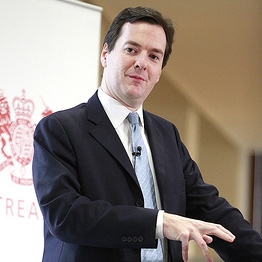England’s major cities will be invited to control their own health budgets as chancellor George Osborne today confirmed he would be extending his Manchester devolution offer nationwide.
Giving his first speech since the election, Mr Osborne said to England’s cities that ‘it is time for you to take control of your own affairs’ and confirmed that the new model of city government would be central to the new Government’s first Queen’s Speech.
Rather than a national devolution scheme cities will have to approach the Treasury to negotiate the extent of budgetary control they will be given, and offer is only open to cities who first instate an elected mayor.
Speaking in Manchester today, Mr Osborne said: ‘Here’s the deal: We will hand power from the centre to cities to give you greater control over your local transport, housing, skills and healthcare.
‘And we’ll give the levers you need to grow your local economy and make sure local people keep the rewards.’
He added that the city must have a mayor in place to be accountable for budgets, which will not initially extend to tax raising power, saying: ‘I will not impose this model on anyone. But nor will I settle for less. London has a mayor. Greater Manchester has agreed to have a mayor as part of our Northern Powerhouse – and this new law will make that happen.’
As previously reported, Greater Manchester is primed to be the first city to take control of health, with local authorities commissioning services, including general practice, alongside CCGs. But London local authorities have been equally vocal in calling for devolution of health responsibility to address what London Assembly health spokesperson Dr Onkar Sahota called London’s ‘unique’ health needs.
The Greater Manchester deal will see all £6bn of NHS England’s current responsibilities passing over to local government and one of the first priorities will be expanding existing GP seven day working schemes.
An NHS England spokesperson said: ‘While we’ve been clear that the arrangements that are eventually finalised in Manchester will be unique to Manchester, we hope that this agreement will be the first of many, and we would welcome talks with any city region or locality consortium that wants to do something similar.’
Manchester LMC honorary secretary Dr Tracey Vell, who was recently invited onto the Greater Manchester’s devolution health committee has told Pulse that the city is looking at a setting up a new model of integrating health and social care across several ‘hubs’ shared by primary and secondary care.
Commenting on today’s announcement, GPC deputy chair Dr Richard Vautrey said it was ‘not really clear what the benefits’ of healthcare devolution to cities were.
He said: ‘I don’t think you necessarily need a big political gesture to achieve local cooperation. What you need is the will of organisations in the area to work closer together.’
He said he also saw ‘a risk of politicising the health and social care system in an area’ if local elected politicians were put in charge.
He said: ‘While that might bring greater accountability, there’s also a risk that you end up with particular individuals, who don’t necessarily have a full understanding of the clinical aspect of healthcare delivery, fighting to preserve a local service for local political rather than good clinical reasons.’

















